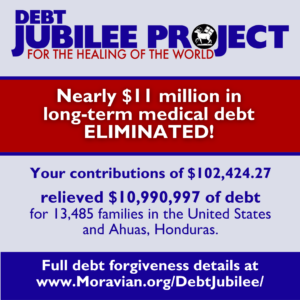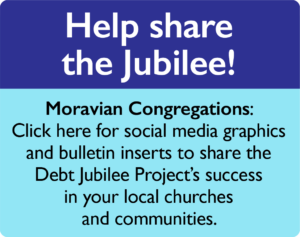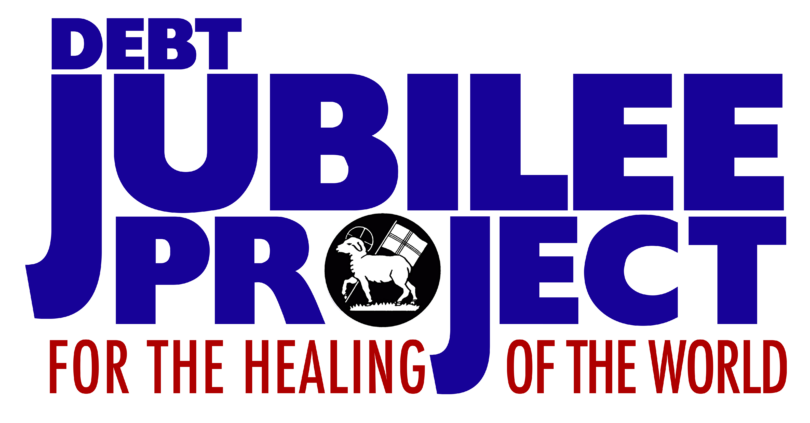The Debt Jubilee Project: For the Healing of the World, a collaborative effort developed by four Moravian Church agencies, has raised more than $100,000 to relieve medical debt in the U.S. and Honduras.
The Debt Jubilee Project will help eliminate nearly $11 million in long-term medical debt owed by individuals living in U.S. counties with a Moravian presence (through a congregation or ministry), along with relieving debt owed by patients of the Moravian medical clinic in Ahuas, Honduras.
Two hundred eighty-four donations were received from 71 congregations. Contributing to this project, not knowing exactly whose debt would be forgiven or what their circumstances might be, was a tremendous act of grace and hope.
 The Debt Jubilee Project: For the Healing of the World brought together the Board of World Mission, the Southern Province Commission on Congregational Development, the Moravian Ministries Foundation in America and the Interprovincial Board of Communication. The effort was inspired by the work of Trinity Moravian Church in Winston-Salem, N.C., who recently erased more than $3 million in medical debt for those living in several surrounding counties.
The Debt Jubilee Project: For the Healing of the World brought together the Board of World Mission, the Southern Province Commission on Congregational Development, the Moravian Ministries Foundation in America and the Interprovincial Board of Communication. The effort was inspired by the work of Trinity Moravian Church in Winston-Salem, N.C., who recently erased more than $3 million in medical debt for those living in several surrounding counties.
The initial goal for the Debt Jubilee Project was to raise $50,000 in 50 days. Instead, the project doubled its goal, raising $102,424.27!
Eliminating medical debt was possible in the U.S. through a partnership with RIP Medical Debt, an organization that purchases medical debt for pennies on the dollar and erases that debt, which would otherwise have been sold to for-profit debt collectors.
A major impact
Seventy-five percent of the funds raised through this effort went to relieving medical debt in the U.S. Through RIP Medical Debt’s process, 13,441 recipients in 37 U.S. counties will see their medical debts erased (click here to see the report from RIP Medical Debt.) The individuals and families who owe the medical debt purchased will receive a letter informing them that their debt is forgiven.
The remaining 25 percent will be used for debt forgiveness for patients of the Clínica Evangélica Morava in Ahuas, Honduras. The clinic’s staff recommended a priority list of those most in need: 1) patients with terminal illness; 2) HIV patients; 3) patients with disabilities; 4) single mothers; and 5) elderly patients. Forty-four families, with patients ranging in age from 6 months to 91 years old, will receive support. Along with eliminating the debts of those patients, the funds will be utilized to cover purchases of medicines and medical equipment for the clinic.
 The response to The Debt Jubilee Project illustrates the generosity of those in the Moravian world and demonstrates that when we pool our resources and efforts, we can have a great impact.
The response to The Debt Jubilee Project illustrates the generosity of those in the Moravian world and demonstrates that when we pool our resources and efforts, we can have a great impact.
We hope that the success of this project will encourage others to find tangible ways to help relieve suffering in their communities and around the world.

